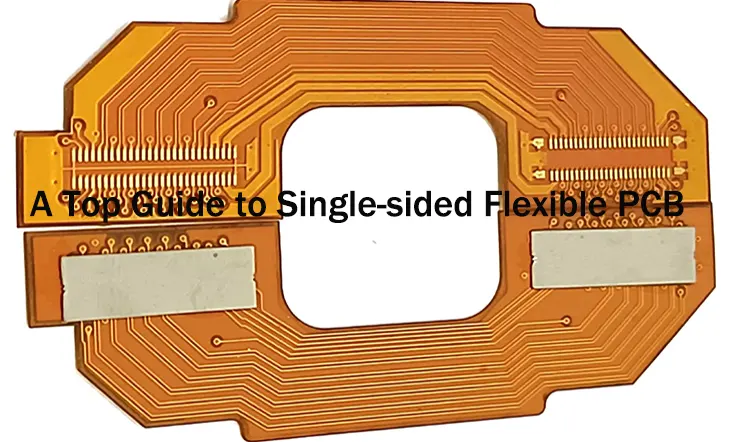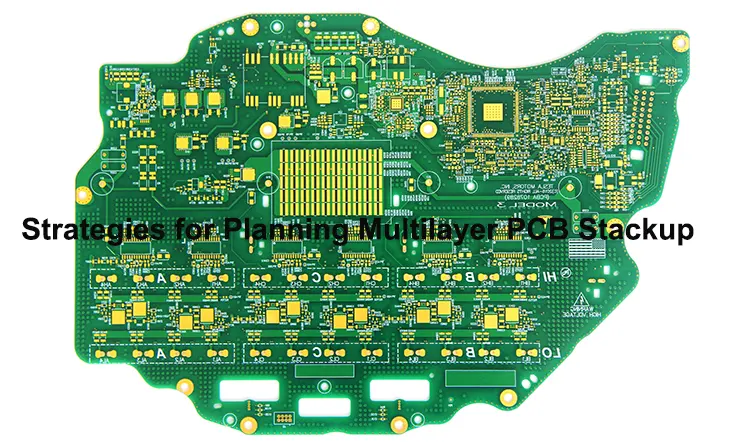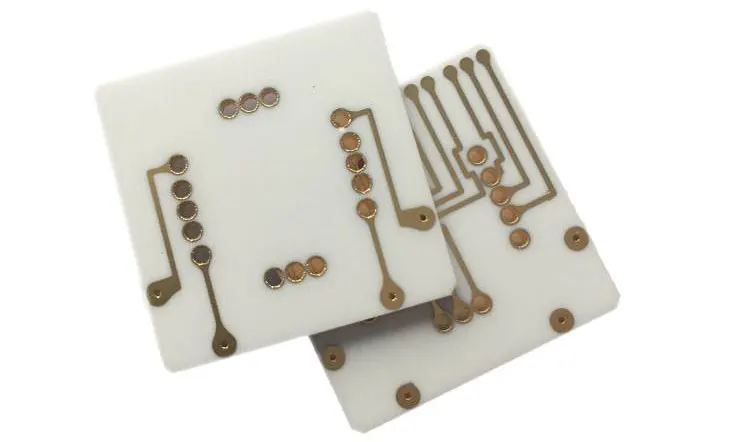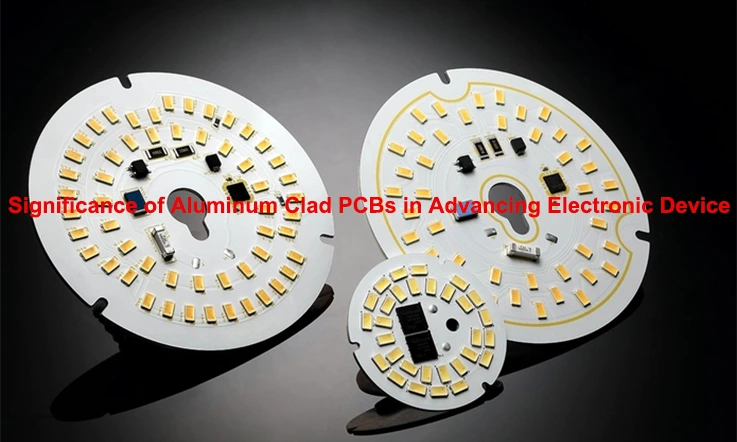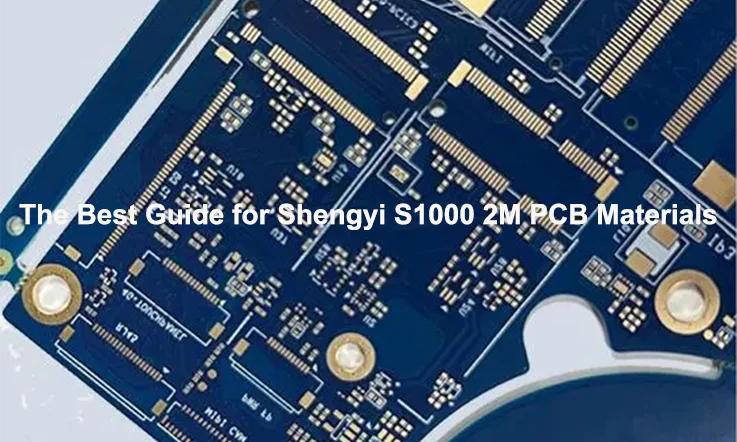
Are you in need of reliable information about the Shengyi S1000-2M PCB material? Look no further, as we provide in-depth insights in this article.
This article aims to provide a comprehensive understanding of the features, properties, applications, and more pertaining to the Shengyi S1000-2M PCB material. Additionally, we will compare it with the Shengyi S1000-2 PCB material for a better understanding.
If you are looking to enhance your knowledge in this area, we invite you to join us as we delve into the essential aspects you should know about the Shengyi S1000-2M PCB material.
Features of the Shengyi S1000-2M
When it comes to identifying the Shengyi S1000-2M PCB material, it is crucial to pay close attention to avoid any confusion or mistakes.
Understanding the key features of this material will provide you with valuable knowledge in selecting the appropriate laminate type. Here are the major features of the Shengyi S1000-2M PCB material:
Lower Z-Axis CTE for improved through hole reliability: The Shengyi S1000-2M offers a lower coefficient of thermal expansion (CTE) in the Z-axis direction. This feature enhances the reliability of through-hole connections.
Excellent Mechanical Processability and Thermal Resistance: The material exhibits impressive mechanical processability, allowing for ease of manufacturing and assembly. It also boasts high thermal resistance, making it suitable for applications with elevated operating temperatures.
Lead-free Compatible & CAF Resistant: The Shengyi S1000-2M is compatible with lead-free assembly processes, meeting the industry’s environmental requirements. It also provides resistance against Conductive Anodic Filamentation (CAF), ensuring long-term reliability.
High UV Resistance and Tg: This PCB material offers high resistance to ultraviolet (UV) radiation, making it suitable for outdoor applications exposed to sunlight. It also has a high glass transition temperature (Tg), ensuring stability under elevated temperatures.
High Heat Resistance: The Shengyi S1000-2M exhibits excellent heat resistance, allowing it to withstand elevated temperatures without compromising its structural integrity.
Low Water Absorption: With its low water absorption properties, this material maintains its electrical and mechanical performance even in humid environments.
By understanding these features, you can make informed decisions when selecting the appropriate PCB material for your specific application.
Applications of the Shengyi S1000-2M
The Shengyi S1000-2M PCB material finds applications in various industries and sectors. Some of the key applications include:
1. High layer count PCBs: Due to its excellent mechanical processability and thermal resistance, the Shengyi S1000-2M is well-suited for high layer count PCBs. These PCBs typically require materials that can withstand the stress and demands of complex circuitry arrangements.
2. Automotive Electronics: The automotive industry demands reliable and durable PCB materials. The Shengyi S1000-2M meets these requirements with its low Z-axis CTE for improved through hole reliability, high heat resistance, and resistance to CAF. It is commonly used in automotive electronics such as control units, safety systems, and infotainment systems.
3. Computing & Communications: With the increasing complexity and miniaturization of computing and communication devices, the Shengyi S1000-2M is an ideal choice for PCBs in these industries. Its excellent mechanical processability ensures efficient manufacturing, while its high Tg and thermal resistance make it suitable for high-performance applications.
4. Military & Aerospace: The military and aerospace sectors demand PCB materials that can withstand harsh environmental conditions and stringent performance requirements. The Shengyi S1000-2M’s high heat resistance, UV resistance, and mechanical durability make it an excellent choice for applications in these industries.
By catering to these diverse applications, the Shengyi S1000-2M PCB material proves its versatility and reliability in various industries.
Recommended materials for Shengyi S1000-2M PCB manufacturing
When manufacturing PCBs using the Shengyi S1000-2M material, it is essential to consider the recommended materials for optimal performance and compatibility. Here are some recommended materials for Shengyi S1000-2M PCB manufacturing:
Copper foils:
High-quality copper foils with appropriate thickness and surface treatment are recommended for PCB manufacturing. These foils should have good adhesion to the Shengyi S1000-2M material and provide excellent conductivity.
Prepregs:
Prepregs are resin-impregnated fiberglass sheets used in the lamination process of multi-layer PCBs. It is crucial to choose prepregs that are compatible with the Shengyi S1000-2M material in terms of resin type, resin content, and thickness. This ensures proper bonding and reliability of the PCB.
Epoxy Laminate:
Epoxy laminate is a type of substrate material used in PCB manufacturing. It typically comprises epoxy resin reinforced with a fiberglass or other reinforcing material. Epoxy laminate offers excellent electrical insulation properties and mechanical strength, making it suitable for various applications. It also exhibits thermal resistance and chemical resistance, maintaining its structural integrity under high temperatures and exposure to chemicals.
Similarities between Shengyi S1000-2M and Shengyi S1000-2
The Shengyi S1000-2 and Shengyi S1000-2M PCB materials/laminates exhibit some similarities, but the choice between them depends on the specific requirements of the application.
●One similarity between the two materials is their anti-Copper Adhesion Failure (CAF) capability. This means that they are designed to prevent electrochemical corrosion, enhancing the overall durability of the PCB.
●Both the Shengyi S1000-2 and Shengyi S1000-2M materials are compatible with lead-free applications. This is important as the industry continues to transition away from lead-based soldering processes.
●Another shared characteristic is their excellent through-hole reliability capabilities. This ensures that PCB components are securely and reliably mounted, reducing the risk of failure or damage.
When selecting between the Shengyi S1000-2 and Shengyi S1000-2M materials, it is crucial to consider the specific requirements of the application. Factors such as operating conditions, desired electrical performance, and manufacturing processes should be taken into account to determine which material best meets the needs of the PCB design.
Comparison with Other PCB Materials
Shengyi S1000 2M is a high-performance PCB material that offers excellent electrical and mechanical properties. When compared to other PCB materials, here are some key differences:
1. FR-4: Shengyi S1000 2M offers better electrical performance and higher Tg (glass transition temperature) compared to standard FR-4 materials. It also has lower moisture absorption and better thermal stability.
2. Rogers 4350B: Shengyi S1000 2M is a cost-effective alternative to Rogers 4350B, offering similar electrical performance and thermal stability at a lower price point.
3. Isola 370HR: Shengyi S1000 2M has comparable electrical properties and thermal performance to Isola 370HR, but with better cost-effectiveness.
Overall, Shengyi S1000 2M offers a balance of high performance, cost-effectiveness, and reliability, making it a suitable choice for a wide range of PCB applications.
Best Practices for Using Shengyi S1000 2M in PCB Design and Fabrication
When using the Shengyi S1000 2M PCB substrate in your design and fabrication process, here are some guidelines and considerations to keep in mind:
Material Specifications: Familiarize yourself with the specific specifications of the Shengyi S1000 2M material, including its dielectric constant (Dk), dissipation factor (Df), thermal conductivity, Tg (Glass Transition Temperature), and moisture absorption characteristics. These specifications will help you understand the material’s electrical and thermal properties.
Design Rules: Follow the design rules and guidelines provided by Shengyi or the PCB manufacturer when designing your PCB layout. These rules may include minimum trace widths, spacing, and other design parameters specific to the Shengyi S1000 2M material.
Signal Integrity: Consider the high-frequency performance of the Shengyi S1000 2M material. Its Dk and Df values will impact signal integrity, especially in high-speed designs. Ensure that your design accounts for impedance control, controlled impedance traces, and proper signal routing techniques.
Thermal Management: Evaluate the thermal conductivity of the Shengyi S1000 2M material and consider its ability to dissipate heat. For designs with high-power components or applications that generate significant heat, ensure proper thermal management techniques such as heat sinks, vias, and copper planes.
Manufacturing Compatibility: Verify that the Shengyi S1000 2M material is compatible with the manufacturing processes you plan to use. Consult with your PCB manufacturer to ensure they have experience working with this material and can fabricate it according to your design requirements.
Reliability and Durability: Consider the Tg and moisture absorption characteristics of the Shengyi S1000 2M material in relation to the operating environment of your PCB. Ensure that the material’s Tg meets the requirements for your application’s temperature range, and take precautions to prevent moisture absorption if it could impact performance or reliability.
Cost and Availability: Evaluate the cost and availability of the Shengyi S1000 2M material in comparison to other PCB materials. Consider factors such as material cost, lead times, and the availability of technical support from the manufacturer.
It’s important to note that these guidelines are general considerations, and for specific design and fabrication requirements, it’s recommended to consult with the Shengyi S1000 2M manufacturer or a PCB expert who has experience with this material.
Quality Certifications of the Shengyi S1000-2M
The Shengyi S1000-2M PCB has obtained several quality certifications that demonstrate its adherence to industry standards and regulations. These certifications include:
1. TS-16949: This certification ensures that the PCB manufacturing process meets the quality management requirements for the automotive industry.
2. IPC: The S1000-2M complies with the standards set by the Association Connecting Electronics Industries (IPC), which ensures the quality and reliability of electronic assemblies.
3. RoHS: The PCB is compliant with the Restriction of Hazardous Substances (RoHS) directive, which restricts the use of certain hazardous materials in electronic products.
4. UL: The S1000-2M has been certified by Underwriters Laboratories (UL), a global safety certification company. This certification ensures that the PCB meets safety and performance standards.
5. MIL-PRF-31032: This certification indicates that the S1000-2M meets the requirements specified by the U.S. Department of Defense for the design and fabrication of rigid printed circuit boards.
6. ISO AS9100D and 9001:2015: The S1000-2M is certified under ISO AS9100D and ISO 9001:2015, which are international standards for quality management systems in the aerospace and general manufacturing industries, respectively.
7. IATF16949:2016: This certification demonstrates that the PCB manufacturing process complies with the quality management requirements for the automotive industry.
Additionally, the S1000-2M is available in a 31032 GI 8-layer configuration, providing a high level of performance and functionality for specific applications.
In Conclusion
Shengyi S1000 2M is a game-changing material for PCB designers, offering a host of advantages that enhance the performance and reliability of electronic devices. Its exceptional thermal stability, low dielectric loss, and high glass transition temperature make it an ideal choice for various applications, including high-speed communication systems, aerospace electronics, and automotive electronics. The S1000 2M’s excellent mechanical properties, such as its high flexural strength and low moisture absorption rate, further contribute to the overall durability and longevity of PCBs.
By leveraging the advanced properties of the Shengyi S1000 2M, PCB designers can push the boundaries of their designs, enabling the development of smaller, lighter, and more efficient electronic devices. The material’s compatibility with standard fabrication processes simplifies its integration into existing manufacturing workflows, making it accessible to a wide range of designers and engineers.

